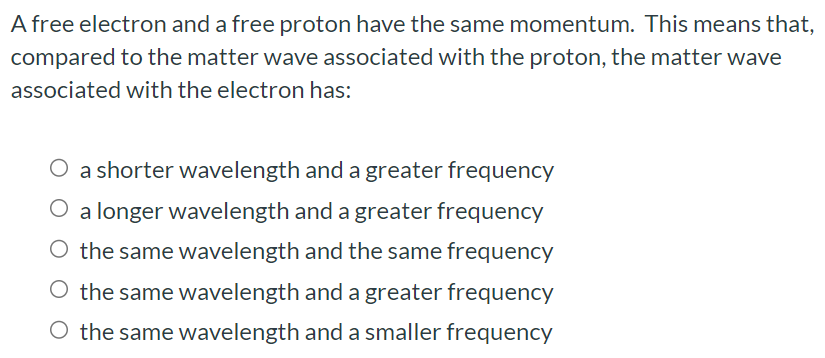A free electron and a free proton have the same momentum. This means that, compared to the matter wave associated with the proton, the matter wave associated with the electron has: a shorter wavelength and a greater frequency a longer wavelength and a greater frequency the same wavelength and the same frequency the same wavelength and a greater frequency the same wavelength and a smaller frequency



You'll get a detailed, step-by-step and expert verified solution.
 Work With Experts to Reach at Correct Answers
Work With Experts to Reach at Correct Answers